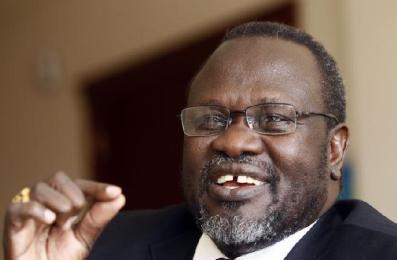South Sudan accuses rebels of making impossible demands
March 10, 2015 (JUBA) – South Sudanese officials on Tuesday claimed the peace talks mediated by regional leaders hit a deadlock after the armed opposition delegation made “nine impossible” demands

“When the president left Juba for Addis [Ababa], everybody had hoped he would return with the peace. But when he arrived and started direct negotiation with Riek and his team, things began to be different,” Igga told South Sudanese lawmakers on Tuesday.
He said although the government delegations were aware of three key sticking points, the opposition came up with six other demands.
“This shows clearly that Riek and his group do not care about the suffering they have caused the people of this country. It shows that they care much about themselves,” stressed Igga.
According to the vice president, the opposition demanded the release of the African Union commission of inquiry about the conflict, recognition of the two armed forces in one country during the transitional period, dissolution and reconstitution of the national parliament to expand to the states and county levels, including a provision in the peace deal that obliges the government to pay for debts incurred by the opposition while fighting government and wanted federalism adopted during the transitional period.
The rebels, he further said, demanded the dissolution of the country’s constitutional review and election commissions and those officials who will run these two institutions should be newly appointed.
They want the national elections commission to be jointed managed and run by the transitional government and the United Nations.
He claimed the opposition did not show interest in discussing with the president on the last day of their direct talks, insisting their demands be fulfilled before going for a power and wealth sharing.
“In the wealth sharing, the opposition demanded creation of generation funds, community funds for where the resources are sourced and produced. They demanded more for states where resources are produced,” said Igga.
“They [rebels] talked of 70%, later 30% to the producing states. But when they were asked to produce the basis, they failed because they did not do scientific research and so their claims could not make sense, but they insisted”, he added.
The presidential spokesperson Ateny Wek Ateny also said the talks collapsed due to opposition demands, which government rejected.
“In the wealth sharing, they talked of 30% to the oil producing states, 30% to the government, 15% to the non-producing states, 15% to counties where oil is produced, 5% to the consolidated account and 5% to the generation funds,” Ateny told Sudan Tribune on Tuesday.
He said the rebels wanted the agreement to extend the geographical scope to areas where they do not have presence, citing the Greater Bahr el Ghazal regions, Equatoria and Lakes state.
“They wanted these areas to be included in their definition but the government said the conflict areas need to be limited to Upper Nile region because this is only where they are active”, Ateny stressed.
A source who preferred anonymity claimed president Kiir was advised by the army’s top brass not to yield to some rebel demands.
“They said they will not accept the integration of rebels into the army with higher ranks than they had before the rebellion. They will not accept inflated numbers of the rebel forces as a means of gaining the majority in the army, and finally they will not accept Dr. Machar as the vice-president,” observed the source.
“They wanted him [Machar] to get a position with no influence”, he added.
South Sudan’s Kiir and leader Machar failed to meet the deadline set by regional mediators for the two sides to strike a final and comprehensive peace deal last week.
Tens of thousands of people have been killed and nearly two million displaced by the conflict estimated to cost the young nation between $22-28bn over the next five years.
(ST)
